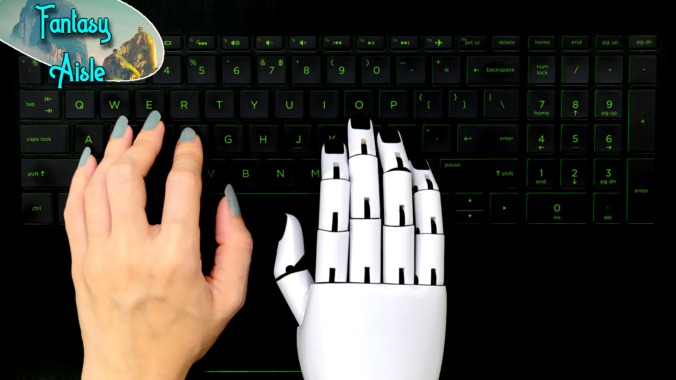Has AI Come for Romantasy Novels Already?
Buzz around the new book Silver Elite and its mysterious author has our fantasy columnist asking questions like, now that our art can be hyper-processed and factory-made, why don’t we demand labels with exactly that information??
Photo: iStockphoto BooksEntertainment
Fantasy Aisle is a monthly column from Jackie Jennings about everything related to horny dragon books.
Silver Elite, a new dystopian romance novel by someone named Dani Francis, has been going viral across BookTok for its steamy, romantasy-adjacent content—and for the mystery surrounding its author. “Dani Francis” almost certainly doesn’t exist; it’s likely a pseudonym, one that fans speculate is a cover for an already-published author. Of course, there are plenty of other theories surrounding the identity of Silver Elite’s creator, the most insidious one being that the book was generated by AI. While it doesn’t seem likely, it also isn’t impossible. And the idea that a popular book could be at least partially machine-generated without a reader’s knowledge is a reality that publishers seem unequipped, or unwilling, to address.
Silver Elite was released in early May, and, look, it’s fun—as sexy, magic-ish tomes go, it’s a solid seven out of 10. The book hit the New York Times bestseller list in mid-June and it received a lot of help getting there; it was a Book of the Month Club pick and was published with sprayed edges, which is catnip for book nerds. But the hype and marketing effort surrounding the release quickly led fans to speculate that Dani Francis is, in fact, not a debut author at all—I’ve seen everything from “it’s Sarah J. Maas” to “it’s a team of ghostwriters”; there’s also theories that Francis could be an established writer experimenting across genres, or trying to recover from bad press or sales—could J.K. Rowling be trying her withered, disgusting hand at the hottest new genre?? Or (and this is my favorite theory) is Dani Francis something worse than a robot, maybe even something worse than J.K. Rowling. Is Dani Francis…a man???
All of these options have decent supporting evidence, and one version of them seems like the most likely option. But there’s also speculation that Dani Francis is, in fact, completely fake, and that the book was generated by AI. I’ve read the book and worked extensively with commercially available AI tools; I don’t think Silver Elite was generated using AI—at least not entirely. But discouragingly, the book’s publisher, Penguin Random House, has not refuted the AI allegations. (It also hasn’t said whether Dani Francis is a pen name, but the book’s inside jacket bears no author photo, and Dani Francis’s social media declares itself “run by assistants Nicki & Krynn” and is devoid of anything but Silver Elite promotion. Her author bio says she is “an avid reader, a lover of all things breakfast, and a hopeless romantic,” a description so hilariously generic I have to hope it’s not how a living writer seriously describes herself.)
-

-

-

-

-

-

-

-

-

-

-

-

-

-

-

-

-

-

-

-

-

-

-

-

-

-

-

-

-

-

-

-

-

-

-

-

-

-

-

-








































